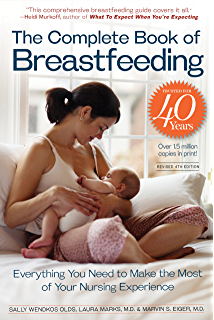There’s oodles of evidence proving that breast milk helps babies defend against infections, prevent allergies, and protect against several chronic conditions. But for a variety of reasons, including moms sharing the primary caregiving role with dads, grandparents, daycare providers, etc., babies are often getting their mother’s milk from a bottle instead of directly from her breast.
But, did you also know that breastfeeding is extremely beneficial for your child’s early facial development, airway and dental health?

 Sucking at the breast is good for a baby’s tooth and jaw development. Babies at the breast have to use as much as 60 times more energy to get food than do those drinking from a bottle… As [the babies jaw] muscles are strenuously exercised in suckling, their constant pulling encourages the growth of well-formed jaws and straight, healthy teeth .
Sucking at the breast is good for a baby’s tooth and jaw development. Babies at the breast have to use as much as 60 times more energy to get food than do those drinking from a bottle… As [the babies jaw] muscles are strenuously exercised in suckling, their constant pulling encourages the growth of well-formed jaws and straight, healthy teeth . 
— The Complete Book of Breastfeeding M.S. Eiger MD, S. Wendkos Olds
Breastfeeding also strengthens and conditions the tongue, allowing it to command a more forward position. This is critical to avoid sleep disordered breathing (SBD) including snoring and sleep apnea.
 Does Bottle Feeding Really Matter?
Does Bottle Feeding Really Matter?
Yes! The anatomic structure of a woman’s nipple makes it more challenging for the baby to receive her milk than through a bottle nipple. Because a baby must work harder at mom’s breast, it strengthens and conditions the tongue. In turn, a strong tongue pushes up and forward, naturally expanding the palate to make a larger resting place for itself. Without a strong tongue the palate remains narrow and “vaulted” with the tongue resting low and back, sometimes blocking the airway during sleep. To counteract this, we sometimes recommend tonsillectomy and/or adenoidectomy to remove obstructions. And sometimes may intervene with early orthodontic therapy called rapid palatal expansion (RPE) at 6+ years old. If those fail, we can usually manage obstructed breathing with a CPAP.
Sleep Disorders and Breastfeeding
It’s estimated that 25% of kids suffer from some level of sleep disorder, and a lack of breast suckling can contribute to the development of sleep disorders. This statistic is important considering that a lack of sleep is associated with a multitude of health concerns for children, including:
- Behavioral Problems
- Headaches
- ADHD
- Learning Disabilities
Also, the growth hormone is formed during sleep, so if your baby has disruptive sleep it may influence their overall growth. With many sleep disorders resulting from a narrowed airway, breast feeding from your nipple, and not a bottle, can help prevent the development of childhood sleep disorders.
How to Prevent Sleep-Disordered Breathing
Find more time for your baby to feed and suckle at the breast. If your baby is struggling with their latch, consult with a lactation specialist. If there’s a tongue or lip tie, they might refer to us for a laser procedure called a frenectomy. Don’t give up if your baby starts preferring a bottle to your breast, because it’s easier to eat through the bottle nipple. Put the bottle away for a while to get more one-on-one time. And if you need to use a bottle, choose a slow flow nipple, so your baby must work harder while feeding. Below are several breastfeeding resources to help encourage and inform you:
